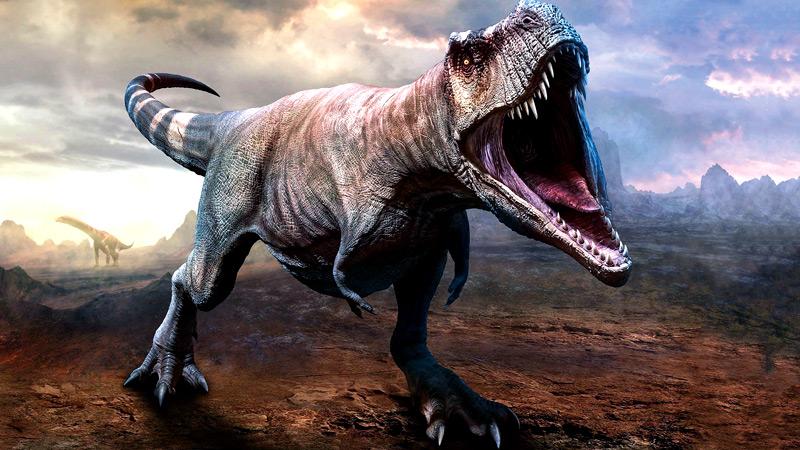
They’re often portrayed as going out with a ‘bang’ after an enormous asteroid hit Earth 66 million years ago.
But a new study suggests that the dinosaurs went out with more of a ‘whimper’.
Researchers from the Chinese Academy of Sciences studied more than 1,000 fossilised dinosaur eggs and eggshells, and claim the animals were already in decline when the asteroid struck - possibly as a result of climate change.
‘Our results support a long-term decline in global dinosaur biodiversity prior to 66 million years ago, which likely set the stage for the end-Cretaceous nonavian dinosaur mass extinction,’ the team wrote in their study, published in PNAS.
Dinosaurs ruled and dominated Earth until around 66 million years ago.
A six-mile-wide asteroid called Chicxulub slammed into what is now Mexico, triggering a mass extinction that killed off more than 75 per cent of Earth’s species.
While previous studies have shown that a wide range of dinosaurs were on Earth just before the asteroid struck, until now it has been unclear whether they were in their prime, or already in decline. Most data on the final days of the dinosaurs comes from North America, but for this study, the researchers turned to records in China.
The team studied over 1,000 fossilised dinosaur eggs and eggshells from the Shanyang Basin in central China.
These fossils came from rock sequences, which the researchers were able to age using computer modelling.
This allowed them to create a timeline of nearly two million years at the end of the Cretaceous – the period just before the extinction – which could then be compared to data from around the world.
Their findings indicate there was a decline in dinosaur diversity across the two-million-year period, with the 1,000 egg fossils belonging to just three species – Macroolithus yaotunensis, Elongatoolithus elongatus, and Stromatoolithus pinglingensis.
A few other dinosaur bones have been found in the region, showing that tyrannosaur and sauropod also lived in the area about 66.4 and 68.2 million years ago.
‘The small number of dinosaurs in the Shanyang Basin and central China is far from the world depicted in Jurassic Park,’ the team said in a statement.
While the reason for this decline leading up to the asteroid remains unclear, the researchers have several theories.
‘This worldwide, long-term decline in dinosaur diversity through the end of the Cretaceous Period and sustained low number of dinosaur lineages for the last few million years may have resulted from known global climate fluctuations and massive volcanic eruptions, i.e., from the Deccan Traps in India,’ they suggest.
‘These factors may have led to ecosystem-wide instability, thus making non-bird dinosaurs vulnerable to mass extinction coincident with the asteroid impact’.
- Daily Mail
